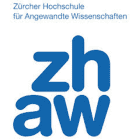

PhD Position in Anthropogenic biodiversity changes in bryophytes 100 %
ZHAW
- 05.09.2025
- 100%
- Mitarbeiter
- Temporär
PhD Position in Anthropogenic biodiversity changes in bryophytes 100 %
School:
Life Sciences und Facility Management
Starting date:
01.11.2025
Your role
The PhD candidate will be based in the Vegetation Ecology Research Group of the ZHAW at Wädenswil (Prof. Jürgen Dengler) while being enrolled at the University of Zurich (UZH) in the Institute for Systematic and Evolutionary Botany (PD Dr. Michael Kessler), and working collaboratively with InfoFlora (Dr. Stefan Eggenberg) and the Ecosystems Dynamics Group of the WSL (Dr. Ariel Bergamini).
It is generally accepted knowledge that biodiversity has declined drastically due to anthropogenic pressures, such as land use intensification and abandonment, eutrophication, landscape homogenisation and global warming. However, it is less well understood which aspects of biodiversity decreased, increased or changed where and when and which drivers were actually responsible for that, while at the same time such knowledge would be needed to design more efficient conservation and restoration measures.
The PhD candidate will work within a larger project involving scientists, citizen scientists, conservation practitioners and conservation authorities for the goal of providing a temporally, spatially and ecologically resolved picture of bryophyte (and partly vascular plant) diversity change and its underlying drivers to translate this into better conservation tools and measures. The VegCHange project is studying these topics across all taxonomic groups of the vegetation, while being part of the National Research Program "Biodiversity and Ecosystem Services" of the Swiss National Science Foundation (SNSF).
There are three predefined broad tasks for the PhD project, while the candidate will have the opportunity to develop and implement own ideas: (1) Comparative analysis of the changes of vascular plant and bryophyte diversity and composition over the past 25 years with plot data from the national biodiversity monitoring program BDM. (2) Trend analyses for species using the floristic database of Swissbryophytes. (3) Resampling and analysing standardised bryophyte plots established across Switzerland in 1994-2006. The PhD candidate is expected to contribute to group responsibilities at ZHAW and teaching at UZH.
Your profile
- Master's degree in biology, environmental sciences or a related subject
- Enthusiasm and interest in the scientific background of the project
- Good plant identification skills, preferentially also for bryophytes, or the willingness to acquire the latter during the PhD
- Experience with statistical modelling in the programming language R
- Field work experience and a valid driver's license
- Willingness to travel and undertake fieldwork for data collection
- Advanced language skills in English (oral and writing); German language skill will be a plus
- Ability to work independently and collaboratively
- Commitment to a collegial and inclusive workplace
This is what we stand for
Zurich University of Applied Sciences ZHAW is one of Switzerland's largest multidisciplinary universities of applied sciences, with over 14'000 students and 3'400 faculty and staff.
ZHAW is committed to gender-mixed and diverse teams in order to promote equality, diversity and innovation.
The Vegetation Ecology Research Group at ZHAW conducts research on a diversity of topics within plant community ecology and conservation biology. Our foci are plant diversity and its change, evidence-based nature conservation, macroecology, impacts of neophytes, broad-scale vegetation classification as well as developing and testing methods and tools for vegetation ecologists. We do field work across all habitat types in Switzerland and, in the case of grasslands, the entire Palaearctic realm. We are coordinating, or are involved in, several of the largest vegetation-plot databases of the world (EVA; sPlot, GrassPlot) and in the core team of the Ecological Indicator Values for Europe (EIVE). We offer an extensive network of cooperation with scientists all over Europe and beyond.
The PhD will be formally conducted that University of Zurich (UZH) in the Doctoral Program in Ecology.
This project offers outstanding opportunities for collaborations at the ZHAW (PI Dengler), InfoFlora (PI Eggenberg), UZH (Dr. Kessler), WSL (Swiss Federal Institute for Forest Snow and Landscape, Dr. Bergamini) and various other Swiss and international partners. You will work on the beautiful ZHAW campus Grüental in Wädenswil, located above the Lake Zurich with a nice botanical garden. Wädenswil with 26,000 inhabitants is only slightly more than 15 min drive with the metro from the vibrant international city of Zurich (with excellent train and flight connections) and perhaps 45 min from the closest destinations in the Alps, thus offering plenty of choices for cultural and outdoor activities.
We look forward to receiving your application with the following documents, each as a separate pdf, all labelled starting with your surname (e.g. Aziz_CV, Chang_MScDegree, Meier_MScTranscript).
- Application letter with motivation (1-2 pages)
- CV (2-4 pages): With information on your educational background, scientific publications and presentations, and any relevant research/work/volunteering activities
- MSc degree certificate: Including the title of your thesis
- MSc transcript: List of courses you have taken and the grades you received
We will begin reviewing applications on 22 September and aim at conducting interviews by the end of September or early October. The position will remain open until filled. Incomplete applications will not be considered. The ideal starting date would be November 2025.
Questions regarding the position can be directed to Prof. Jürgen Dengler (juergen.dengler@zhaw.ch). In this case, please start the subject line with "Questions about SNSF PhD".
What you can expect
We offer working conditions and terms of employment commensurate with higher education institutions and actively promote personal development for staff in leadership and non-leadership positions. A detailed description of advantages and benefits can be found at Working at the ZHAW. The main points are listed below:
Contact
Prof. Dr. Jürgen Dengler
Institute of Natural Resource Sciences
Irina Keiser
Recruiting Manager